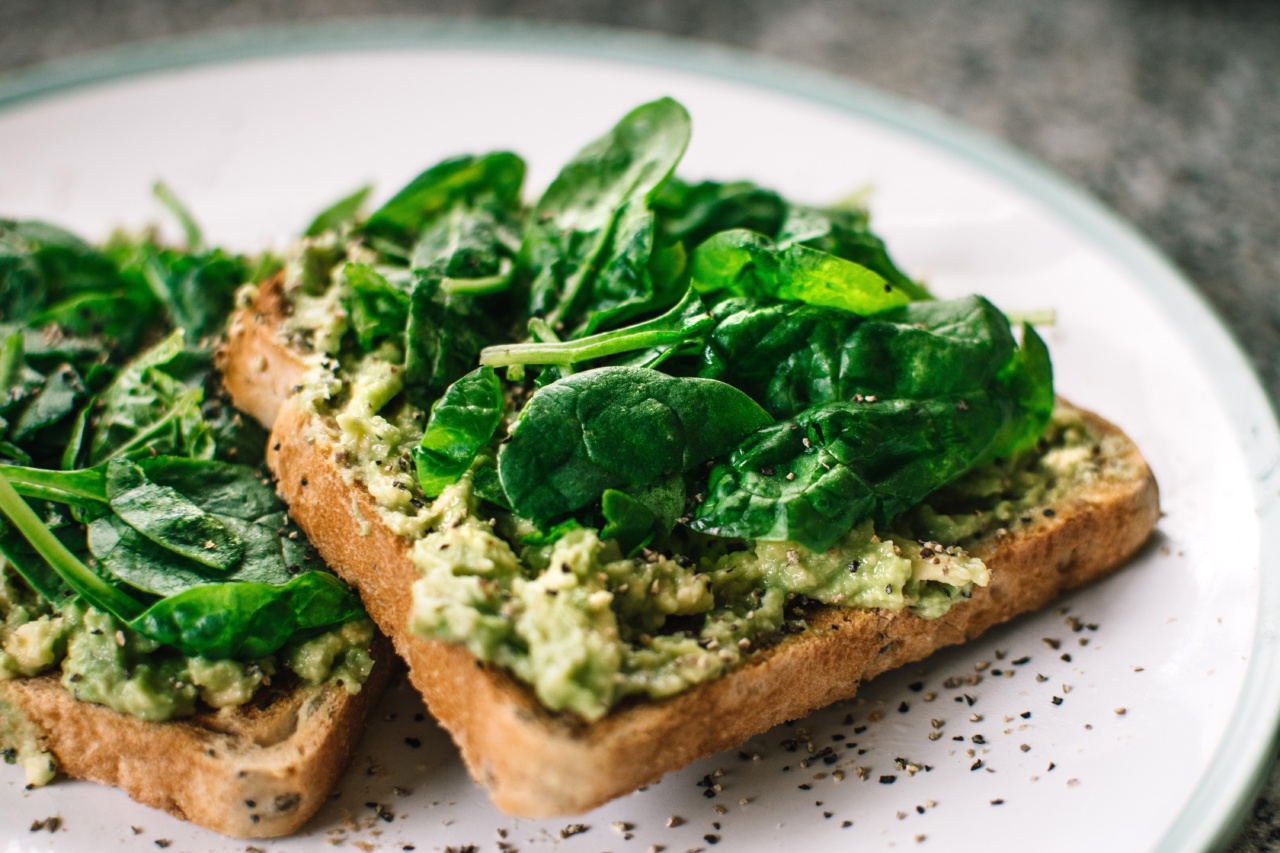When it comes to fighting the signs of aging, spinach is often hailed as a powerhouse superfood. This leafy green vegetable is packed with essential nutrients and antioxidants that can help protect your body from the effects of time.
From promoting healthy skin to supporting brain function, spinach offers a wide variety of benefits that can help you look and feel younger. So, let’s dive into the world of spinach and explore why it’s considered the ultimate anti-aging food.
The Nutritional Powerhouse
Spinach is an excellent source of vitamins and minerals that play a crucial role in maintaining overall health and well-being. Just one cup of cooked spinach contains:.
- Vitamin A: Spinach is rich in beta-carotene, which converts into vitamin A in the body. This vitamin helps keep your skin healthy and aids in proper cell growth.
- Vitamin C: As a potent antioxidant, vitamin C protects the skin from free radical damage and helps to stimulate collagen production, promoting a youthful complexion.
- Vitamin K: Spinach is a top source of vitamin K, which helps prevent age-related bone loss and keeps your skeletal system strong.
- Folate: This B-vitamin found in spinach is crucial for DNA repair and synthesis, promoting healthy cell division and preventing premature aging.
- Iron: Iron deficiency can cause fatigue and contribute to the signs of aging. Spinach is an excellent plant-based source of iron to keep your energy levels high.
Along with these key nutrients, spinach is also rich in fiber, calcium, magnesium, and numerous other vitamins and minerals that support overall health and vitality.
Antioxidant-Rich Properties
Spinach is known for its exceptional antioxidant content, which makes it a potent fighter against free radicals. Free radicals are unstable molecules that can cause cellular damage and accelerate the aging process.
Phytochemicals such as flavonoids and carotenoids found in spinach act as antioxidants, neutralizing free radicals and preventing oxidative stress. This, in turn, helps reduce inflammation and can slow down the aging process.
Lutein and zeaxanthin are two carotenoids abundantly present in spinach. These compounds have been linked to a lower risk of age-related macular degeneration, a common eye condition that can impair vision as you age.
Supports Brain Health
Spinach is not only good for your physical health but also for your brain. Its impressive nutrient profile and antioxidant content have been associated with improved cognitive function and a reduced risk of age-related cognitive decline.
The presence of folate, vitamin E, and vitamin K in spinach contributes to brain health. Folate plays a significant role in synthesizing and regulating neurotransmitters, which are essential for brain function.
Vitamin E is known for its protective effects on brain cells, while vitamin K is involved in the formation of sphingolipids, crucial for maintaining the integrity of brain cell membranes.
Furthermore, the high levels of antioxidants found in spinach help reduce inflammation and oxidative stress in the brain, supporting overall cognitive function and promoting a healthy aging brain.
Glowing Skin and Strong Hair
Spinach can work wonders for your skin and hair. Its rich nutrient content contributes to a radiant and youthful appearance.
The high levels of vitamin A and vitamin C in spinach are particularly beneficial for skin health. Vitamin A helps repair skin tissue, promoting a smoother complexion and reducing the appearance of fine lines and wrinkles.
Vitamin C aids collagen production, which keeps your skin supple, firm, and less prone to sagging.
Spinach is also abundant in iron, which supports proper blood circulation. This increased blood flow to the scalp ensures that hair follicles receive adequate oxygen and nutrients, promoting stronger and healthier hair growth.
Heart Health and Anti-Inflammatory Benefits
Eating spinach regularly can also provide significant benefits to your cardiovascular health.
The nitrates found in spinach promote the production of nitric oxide, which helps relax and dilate blood vessels, improving blood flow and reducing blood pressure.
In addition, the antioxidants and anti-inflammatory properties of spinach help combat chronic inflammation, a leading cause of aging and various diseases.
By reducing inflammation, spinach can support heart health and reduce the risk of age-related conditions, such as heart disease and stroke.
Boosting Energy and Vitality
As we age, maintaining energy levels and vitality becomes increasingly important. Spinach, with its high nutrient content, can provide a natural energy boost and support overall vitality.
The iron and magnesium present in spinach play crucial roles in energy production. Iron helps transport oxygen throughout the body, while magnesium is involved in the synthesis of adenosine triphosphate (ATP), the primary energy molecule in our cells.
Eating spinach regularly can help combat fatigue, improve physical performance, and keep you feeling energized and youthful.
Incorporating Spinach into Your Diet
Now that you know about the numerous anti-aging benefits of spinach, it’s time to make it a regular part of your diet. Here are some easy ways to incorporate spinach into your meals:.
- Add raw spinach leaves to your salads and sandwiches.
- Toss some spinach into your morning smoothies for an added nutrient boost.
- Sauté spinach with garlic and olive oil as a delicious side dish.
- Incorporate spinach into your omelets, frittatas, or scrambled eggs.
- Blend spinach with fruits and yogurt to make a refreshing green smoothie.
Remember to buy fresh spinach from reputable sources, and opt for organic or locally grown varieties whenever possible to maximize its nutritional benefits.
In Conclusion
Spinach truly deserves its reputation as an anti-aging superfood. Its impressive nutrient profile and antioxidant content offer a wide range of benefits, including improved skin health, brain function, heart health, and overall vitality.
By incorporating spinach into your diet regularly, you can nourish your body from the inside out and enjoy the many rewards of this mighty leafy green.





























